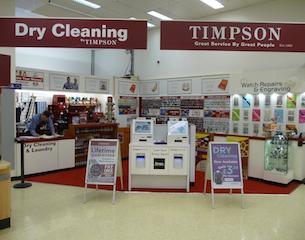During the years a long-serving employee spends with an employer, they are likely to pass through a series of significant life events. The more common of these include birthdays, long-service landmarks and retirement, while many staff will also get married or have a child during their employment.

If you read nothing else, reach this…
- Key life events might include birthdays, weddings, the birth of a child, long service and retirement.
- Whether an employer awards or recognises staff at these key life events will depend on the relationship it has with its employees.
- It is important, whatever life event is being celebrated, that the award or recognition is attainable by all employees.
It is appropriate for organisations to celebrate these life events with staff, providing them with a relevant gift card, voucher or other type of recognition, but other events might be more suited to a celebration with the employee’s direct team.
Andrew Johnson, director-general of the UK Gift Card and Voucher Association, says: “It really depends on individual organisations. Some smaller employers have a formal policy for when an employee gets married, and purchase a gift of some kind, and the same for the birth of a child. But for other organisations, that would just be down to [the employee’s] nearest work colleague.”
Clare Rutherford, customer insight manager at House of Fraser for Business, adds: “It is most definitely appropriate to help an employee celebrate key life events.
“A gift awarded for achieving key workplace milestones, such as long service, promotion or retirement, is given in acknowledgement of the employee’s contribution to the business.”
1. Birthdays
It may depend on the size of the organisation, but birthdays tend to be a life event that is more often celebrated within an employee’s direct team. Johnson adds: “We would generally only see those types of purchase from groups of workmates coming together, rather than from the employer itself.”
All employers will have their employees’ birth dates on file, so birthdays are one of the easiest life events for an organisation to recognise. Colin Hodgson, sales director at Edenred, says: “Increasingly, we see organisations using that data to drive communications around [the theme] Happy Birthday.”
Cash awards are not standard workplace birthday presents because these are often spent on everyday items and may not be seen as a genuine gift. Instead, birthdays are an ideal time to present staff with a gift card or voucher.
Danny Clenaghan, managing director at Argos for Business, says: “Cash bonuses have long been a popular choice of staff benefit, particularly for birthdays and Christmas. However, the true impact of this has been brought into question over time, as employees have begun to expect a bonus and consider it a part of their remuneration package.”
2. Weddings
For life events such as weddings or anniversaries, it will often come down to a line manager or team to celebrate with staff.
Clenaghan adds: “Gift cards are particularly favourable when it comes to a wedding present because employees can decide whether to treat themselves or share the gift with their loved one.”
To celebrate an employee’s wedding, an employer might create a gift that is personal, for instance a Harrods voucher. Tracy Finn, head of corporate services at the department store, says: “The corporate service team at Harrods can create personalised and unforgettable experiences for Harrods gift card recipients for the ultimate gift, from bespoke perfume-making classes to a ‘Couples Day’, featuring a private concierge tour and champagne afternoon tea for two in Harrods’ iconic Georgian Restaurant.”
Another type of gift card that lends itself to wedding celebration is a travel voucher. Johnson says: “In the past five years, and perhaps where you’re seeing people getting married [at an older age] and having second marriages, travel is popular again. It is a way to fund the honeymoon rather than buy new stuff for the home.”
Tracy Aslam, board director of Jordan Media Group, which looks after multiple retailers, including Asda, Boots, Costa Coffee, New Look, Pizza Express and Wickes, says: “A Swissport voucher is really popular for staff when they are getting married because they can start the honeymoon off in a bit of style at the lounge with free food and drink. There is also a version of the voucher that includes champagne.”
These types of celebration will depend on the relationship the organisation has with its employees. Francis Goss, commercial director of Grass Roots Group, says: “Employers are probably on slightly risky ground when they get into personal anniversaries for an individual.
“For example, I have no problem getting a wedding anniversary card from a relative, but I would find it a bit odd, even though my employer knows that information, getting any kind of acknowledgement of stuff in my personal life.”
Rutherford adds: “The marking of personal milestones and celebrations, such as birthdays and marriages, should remain at the discretion of the employer. That said, whatever the policy, it should apply across the board to every member of staff, and must be attainable by all.”
3. Birth of a child
The birth of a child is another life event for which a multi-retailer gift card or voucher might be the most appropriate way to celebrate with staff.
“When we start to look at the rewards that might be given to celebrate these events, gift cards and pre-paid cards are a main component,” says Hodgson. “They particularly become a component when we talk about multi-retail cards.
“Instead of an Amazon voucher or a Marks and Spencer voucher, by issuing a multi-retailer voucher or gift card, the organisation is providing the employee with the ability to celebrate that life event with their family.”
A more tailored gift card or voucher might be appropriate, too, so the parents-to-be can choose to spend money at a department store or a dedicated baby-care shop. For example, Harrods offers gift cards for mothers-to-be to enjoy a maternity massage at its Urban Retreat Spa.
Employers might also choose to give mothers a bouquet of flowers to celebrate the birth of a child.
Aslam adds: “On the birth of a baby, we may feature Boots cards, because that’s a really popular choice.”
4. Long-service awards
Awarding employees for long-service landmarks are much safer from an employer’s perspective than employees’ personal life events, especially because an organisation will have all employees’ start dates on file.
“These tend to be recognition after five, 10, 15 or 20 years’ service,” says Goss. “There is also more of a push towards recognition or reward on an employee’s service birthday. At three years or seven years, they still get a little something acknowledging that they joined the organisation three years ago.”
Johnson adds: “Gift cards and vouchers are one of the popular items for use for long-service awards, mainly because gold and silver clocks went out of the window about 15 years ago.
“We often see travel vouchers used for particularly long-service awards, so 20 years-plus.”
5. Retirement
The end of an employee’s working life, at retirement, is arguably the most significant work-related life event that they will spend with their employer. Employers could send their staff off in style, with travel vouchers or other types of leisure-oriented reward, such as garden, theatre or experience vouchers.
But employers should be wary of falling into retirement stereotypes. Johnson says: “For retirement, for example, not everyone is going to be happy with garden vouchers. Some people might want to go travelling.
“With all of these things, it is about knowing something about the individual and not just having a policy that says, ‘as soon as you reach this milestone, you will only receive this type of voucher’.”
Rutherford adds: “Key career milestones, such as promotion, long-service and retirement should, without question, feature as part and parcel of any employer’s reward, recognition and retention strategy.”
Ultimately, whether an organisation intends to celebrate key life events with employees really comes down to what type of employer it is and what type of relationship it has with its staff.
“It is really down to individual events,” says Johnson. “To really make the reward or motivation hit home, it is about trying to find the right gift card or voucher for the right person for the right event. So, making it as personable as possible.”
Employers hold a vast amount of data on their employees and should not underestimate the power of that data in building relationships with staff. Goss says: “The principle of lifecycle-based communications to employees, based on the stages they are at in their journey with the organisation, is becoming increasingly popular.”
Research stats on gift cards and vouchers
- 11% of respondents offer retail or leisure vouchers as a core benefit to all employees, while 7% offer dining cards.
- 26% of respondents offer employees retail or leisure vouchers on a voluntary basis, while 25% offer dining cards.
- 8% of respondents offer retail or leisure vouchers through a flexible benefits scheme, and 8% offer dining cards.
Source: The Benefits Research 2014, published in May.
Timpson strives for personal touch

Timpson gives gifts to celebrate employees’ significant life events in order to ensure its workforce feels appreciated.
The shoe repair company also felt it was important to avoid offering impersonal benefits.
These include a £25 cash award for expectant mothers to help them buy comfortable maternity clothes for work, as well as £25-worth of Mothercare vouchers for all new parents on the birth of a child.
The organisation also has benefits in place to celebrate an employee’s marriage, which people support advisor Laura Rowley will experience when she marries in 2015. “When [an employee] gets married, they are given an extra weeks paid holiday and £100 to go towards their big day,” she says. “There is also a Mercedes our managing director and chairman use, which can be hired for free on the weekends if people want it for their wedding.”
Rowley adds that the organisation wanted to show its appreciation for staff by understanding what is important to them.
“We didn’t want to offer something where people charge a card. Babies, birthdays and marriages are the key moments of life and should be celebrated.
“On 18th, 21st, 30th and other key birthdays, we send bottles of champagne to employees. Everybody also gets his or her birthday off, or the day before, or after to recover. It is more personal and one of those things where people think ‘isn’t that lovely’.”